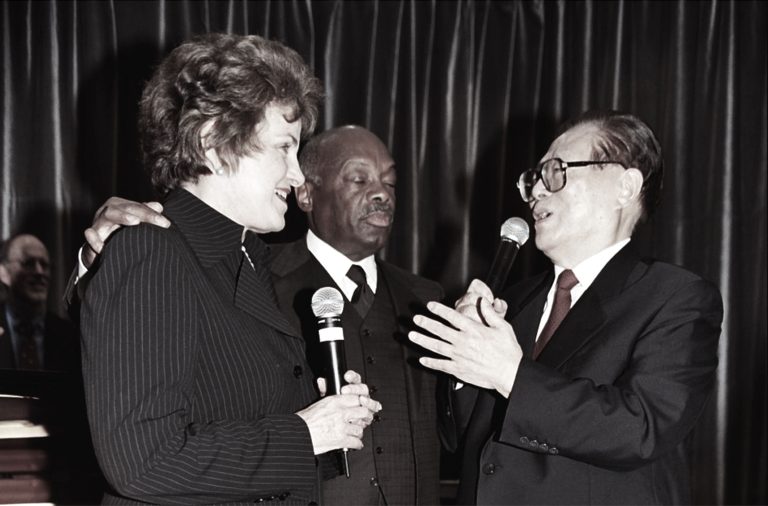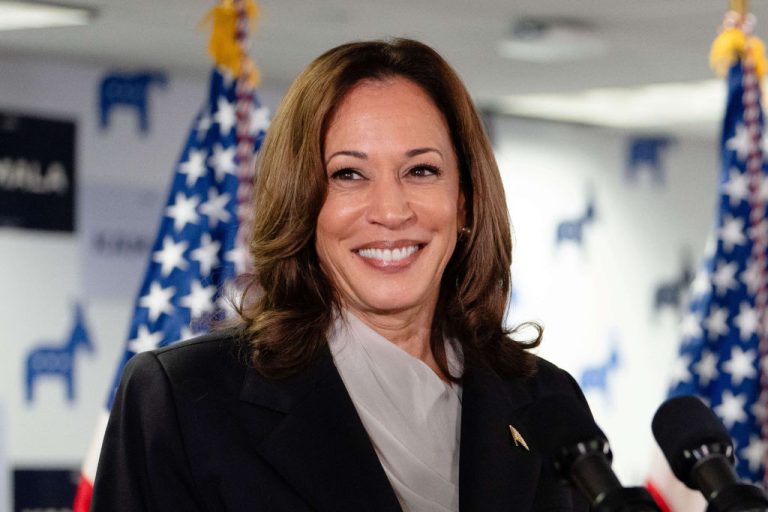California Sen. Dianne Feinstein died at her home in Washington on Sept. 28, her office has confirmed. She was 90.
In a statement, President Joe Biden called Feinstein “a pioneering American,” a “true trailblazer,” and a “cherished friend.”
“Dianne made her mark on everything from national security to the environment to protecting civil liberties,” the president said in the statement, adding that, “She’s made history in so many ways, and our country will benefit from her legacy for generations.”
Feinstein, a Democrat, was the longest-serving female senator ever and the oldest sitting U.S. senator. She advocated for environmental protection, abortion rights, and gun control, among other things.
Her political career began in 1960, when she was appointed by then-Gov. Pat Brown to the California Women’s Parole Board. In 1969 she was elected to the San Francisco Board of Supervisors, becoming its president in 1978.
Success
You are now signed up for our newsletter
Success
Check your email to complete sign up
After two failed bids to be elected mayor of San Francisco, the Board of Supervisors voted to appoint her to the position on December 4, 1978, a position she held for the next decade.
As mayor, her tenure survived a recall attempt in 1983 and was named the country’s most effective mayor by CIty & State magazine in 1987.
Running unsuccessfully for governor in 1990, she was elected to the U.S. Senate in 1992 in a special election. She was subsequently re-elected five times.
Strong advocate for Sino-US Relations
In July 2020, during a hearing of the Senate Judiciary Committee, Feinstein called the People’s Republic of China (PRC) a “respectable nation,” as reported by the Washington Free Beacon.
“We hold China as a potential trading partner, as a country that has pulled tens of millions of people out of poverty in a short period of time, and as a country growing into a respectable nation amongst other nations,” she said at the time.
Her comments came as public opinion was souring on Beijing. At the time the Pew Research Center found that 63 percent of Democrats viewed China unfavorably and 83 percent of Republicans felt the same.
She was a staunch opponent to holding the Chinese Communist Party (CCP) accountable for the novel coronavirus pandemic, arguing that attempting to do so could expose the U.S. government to lawsuits by foreign nationals.
In August 2018, details emerged about one of Feinstein’s staffers; her driver, gofer and liaison to the Asian-American community, who had worked for her for 20 years. He was revealed to be a CCP spy by the Federal Bureau of Investigation (FBI).
Feinstein, who was the Chair of the Senate Intelligence Committee at the time, was reportedly mortified when she was informed of her staffers’ relations with the CCP and had him retire.
According to CBS News, at the time, a former FBI agent and KPIX 5 security analyst, Jeff Harp, said, “Think about Dianne Feinstein and what she had access to. One, she had access to the Chinese community here in San Francisco; great amount of political influence. Two, correct me if I’m wrong, Dianne Feinstein still has very close ties to the intelligence committees there in Washington D.C..”
Husband’s deep ties to China
Feinstein’s husband, billionaire Richard Blum, who died in 2022, had deep ties to and economic interests in China.
In the 1980s, Blum invested $17 million into a deal with a Chinese state-owned business for a mixed real estate complex outside of Shanghai.
According to Tablet Magazine, in 1997, Blum said that less than two percent of his estimated $1.5 billion worth of assets were committed to China.
This changed however in 2004, after years of negotiations, when his joint venture, Newbridge Capital, acquired an 18 percent stake in the Shenzhen Development Bank, marking the first time a Chinese bank came under the control of a foreign entity.
Feinstein insisted that her husband’s business activities in China had no influence on her politics, saying that her and her husband had “built a firewall” and “That firewall has stood us in good stead.”
However, this claim came under fire after Feinstein and her husband hosted former Chinese President Jiang Zemin at their home for Thanksgiving in 2015.
Feinstein first met Jiang in Shanghai in 1978, when he was the mayor of the city. The two later designated San Francisco and Shanghai “sister cities.”
In conversation with the New Yorker at the time, Feinstein referred to Jiang as a “good friend,” and spoke about how she and Jiang had danced together.
Under Jiang’s leadership, corruption in China flourished, something The Diplomat called “one of his biggest failures,” and he was also responsible for implementing stability measures, a strategy still in place today that is often abused to crack down on dissent and to censor the media and Chinese citizens at large.
Jiang is also responsible for the repression of Falun Gong practitioners in China. He oversaw the large-scale arbitrary imprisonment and coercive “transformation” of the spiritual discipline’s adherents, and by some accounts put into motion the atrocity of organ harvesting against them.







